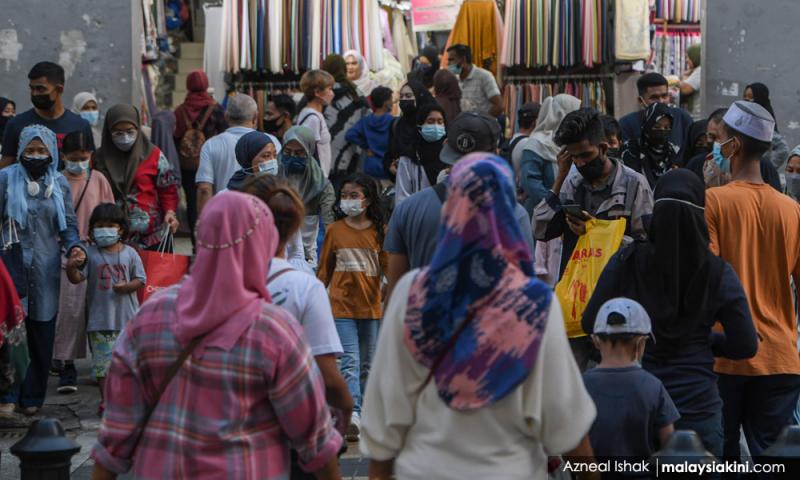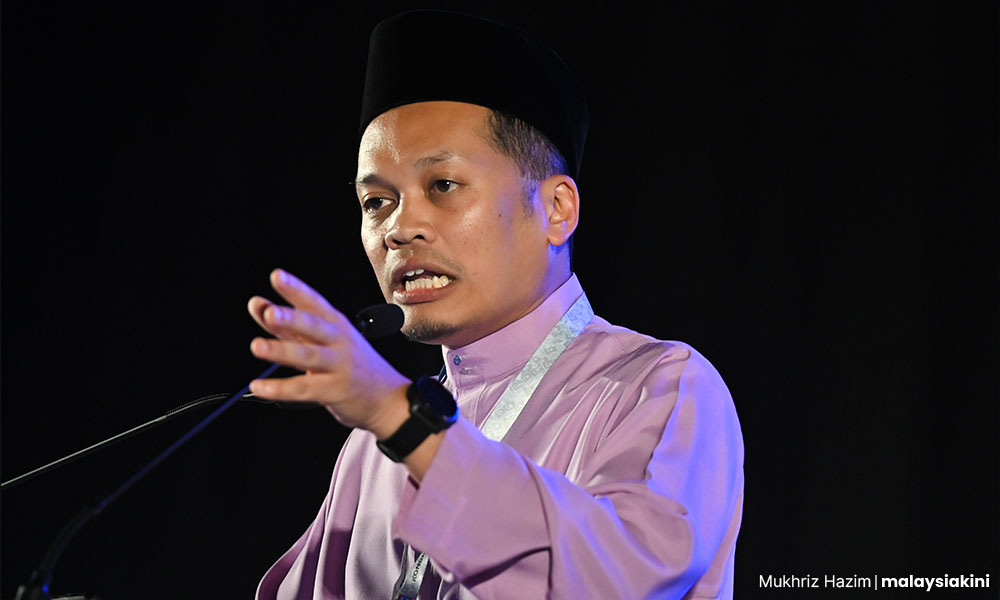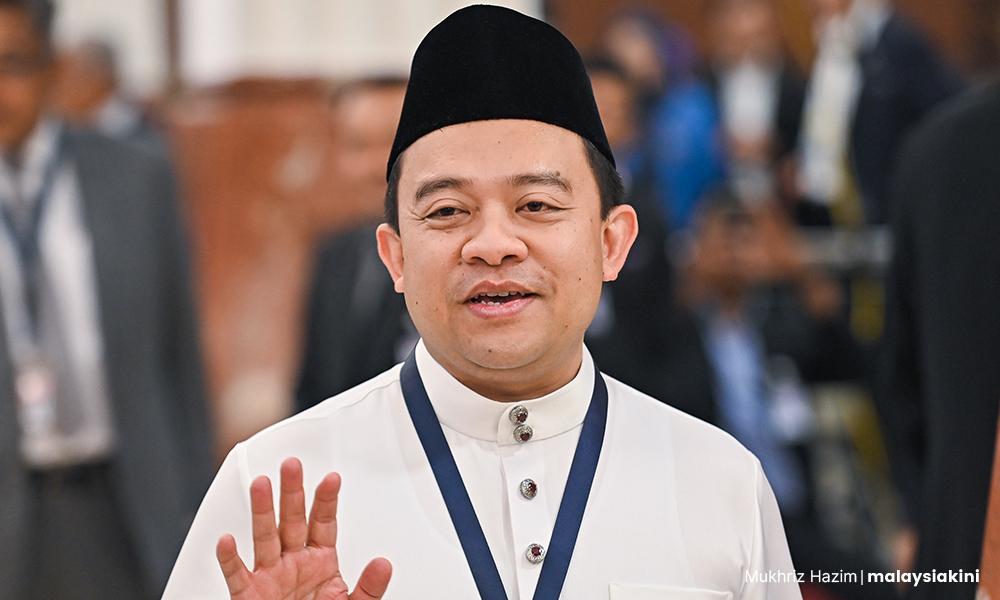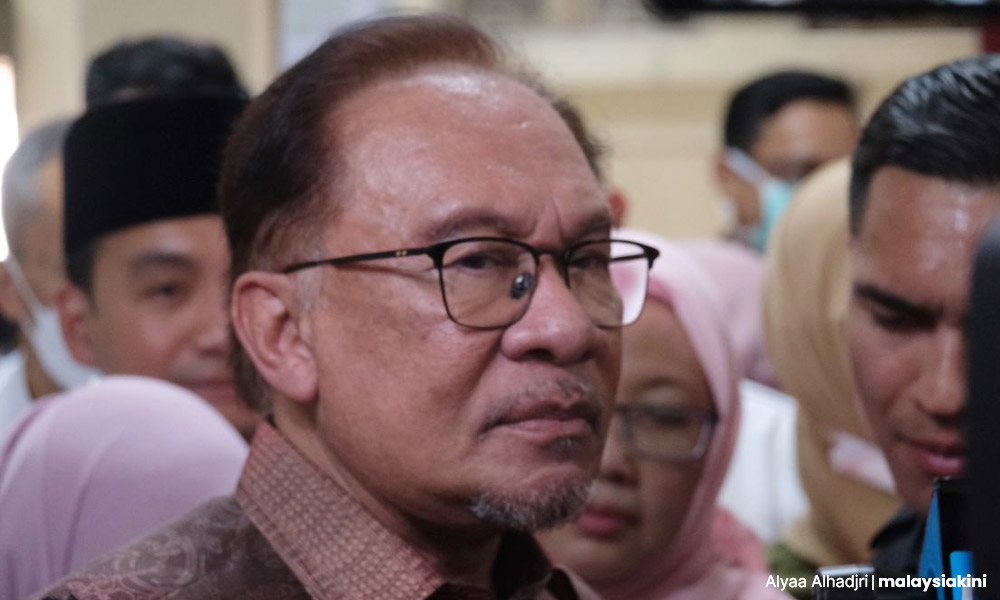
S Thayaparan
“Malaysia’s multiracial democracy must be defended. There is no need to be apologetic about attempting to uphold both needs-based empowerment and the bumiputera agenda.”
COMMENT | I belong to that category of citizens who are older than Malaysia.
I can tell you one thing. Age doesn’t care about bumiputera rights. It doesn’t care about “ketuanan” (supremacist) politics and does not care about race, religion, or even royalty.
If you live long enough, you will understand that age makes everyone equal. Some of us get it better than others but it is because we didn’t abuse our bodies when we were younger.
Even this is not entirely true. Some folks have lived a good clean life but suffer from the worst that the vagaries of age offer.
It is just dumb luck, which is what genetics is, I suppose.
Hopeful
Natural Resources, Environment and Climate Change Minister Nik Nazmi Nik Ahmad wrote a very optimistic piece about this country.
I do not doubt he believes that Malaysia’s best days are ahead of us.
He’s hopeful for our country and Nik Nazmi is one of those political operatives; if you read his articles and hear him speak, he manages to pull it off.
“Malaysia’s multiracial democracy must be defended. There is no need to be apologetic about attempting to uphold both needs-based empowerment and the bumiputera agenda.”
– Nik Nazmi Nik Ahmad
COMMENT | I belong to that category of citizens who are older than Malaysia.
I can tell you one thing. Age doesn’t care about bumiputera rights. It doesn’t care about “ketuanan” (supremacist) politics and does not care about race, religion, or even royalty.
If you live long enough, you will understand that age makes everyone equal. Some of us get it better than others but it is because we didn’t abuse our bodies when we were younger.
Even this is not entirely true. Some folks have lived a good clean life but suffer from the worst that the vagaries of age offer.
It is just dumb luck, which is what genetics is, I suppose.
Hopeful
Natural Resources, Environment and Climate Change Minister Nik Nazmi Nik Ahmad wrote a very optimistic piece about this country.
I do not doubt he believes that Malaysia’s best days are ahead of us.
He’s hopeful for our country and Nik Nazmi is one of those political operatives; if you read his articles and hear him speak, he manages to pull it off.

Natural Resources, Environment and Climate Change Minister Nik Nazmi Nik Ahmad
Nik Nazmi, a generation of us came from those better days. At a time in Malaysia, where we truly believed that the future was our best days ahead of us.
It was a time when “ketuanan” politics and bumiputera rights didn’t have a chokehold on us the way it does now.
Look at the culture of the dominant polity. Look at how it has changed. How everything is “haram” and where the state hunts non-conformists.
For a brief period, there was a time in the state security apparatus when we worked together as Malaysians. I swear to you, remembering how the different ethnic groups worked and played together, you could believe there was a Bangsa Malaysia.
Those better days became the long Umno watch and the pragmatism of the politics of complicity.
The quote that opens this piece is the key to why this Malaysian project is bound to fail.
I mean fail as a multiracial democracy, that is.
Effective social policy?
First, there has never been a Malay or non-Malay operative who has been apologetic about the bumiputera agenda. There has never been a time in Malaysia where a political coalition has endorsed needs-based empowerment programmes.
The current prime minister had the right-ish strategy in his reformasi days when he claimed that needs-based empowerment programmes would benefit everyone, and the Malays the most because they were the majority.
For non-Malays, this kind of talk was manna from heaven.
After decades of the old maverick, this kind of rhetoric reminded the non-Malays that maybe Malaysia’s best days were ahead of us.
Needs-based programmes and the bumiputera agenda are mutually exclusive.
The former is a policy that operates on the assumption that the inequality of a particular society could be remedied by applying state programmes on the most disenfranchised regardless of ethnicity and based on economic variables.
Whether this is an effective social policy is open for debate.
You could ask Bersatu operative Wan Saiful Wan Jan about this but keep in mind his views have changed - calling affirmative action policies to be “morally wrong” and unjustifiable, even from the perspective of data and the Constitution, Wan Saiful was of the opinion that affirmative action policies, at the root of it, are discriminatory.
Nik Nazmi, a generation of us came from those better days. At a time in Malaysia, where we truly believed that the future was our best days ahead of us.
It was a time when “ketuanan” politics and bumiputera rights didn’t have a chokehold on us the way it does now.
Look at the culture of the dominant polity. Look at how it has changed. How everything is “haram” and where the state hunts non-conformists.
For a brief period, there was a time in the state security apparatus when we worked together as Malaysians. I swear to you, remembering how the different ethnic groups worked and played together, you could believe there was a Bangsa Malaysia.
Those better days became the long Umno watch and the pragmatism of the politics of complicity.
The quote that opens this piece is the key to why this Malaysian project is bound to fail.
I mean fail as a multiracial democracy, that is.
Effective social policy?
First, there has never been a Malay or non-Malay operative who has been apologetic about the bumiputera agenda. There has never been a time in Malaysia where a political coalition has endorsed needs-based empowerment programmes.
The current prime minister had the right-ish strategy in his reformasi days when he claimed that needs-based empowerment programmes would benefit everyone, and the Malays the most because they were the majority.
For non-Malays, this kind of talk was manna from heaven.
After decades of the old maverick, this kind of rhetoric reminded the non-Malays that maybe Malaysia’s best days were ahead of us.
Needs-based programmes and the bumiputera agenda are mutually exclusive.
The former is a policy that operates on the assumption that the inequality of a particular society could be remedied by applying state programmes on the most disenfranchised regardless of ethnicity and based on economic variables.
Whether this is an effective social policy is open for debate.
You could ask Bersatu operative Wan Saiful Wan Jan about this but keep in mind his views have changed - calling affirmative action policies to be “morally wrong” and unjustifiable, even from the perspective of data and the Constitution, Wan Saiful was of the opinion that affirmative action policies, at the root of it, are discriminatory.

Tasek Gelugor MP Wan Saiful Wan Jan
Discrimination, as it is, is wrong, he claimed. And even if affirmative action is positive, it cannot be used as a means or a reason to justify discrimination.
He saw Malaysia, as it is now, as a divided nation, and the line between needs and race for affirmative action becoming increasingly unclear.
And this is the point. Rational people can have honest discussions about affirmative action programmes and we can discuss these as “Malaysians”.
The latter is designed to disenfranchise minorities from the political and economic landscape. Nik Nazmi was being delicate.
The bumiputera agenda is based on the odious foundation of Malay rights and privileges. Successive prime ministers have attempted to leverage the bumiputera agenda to remain in power.
Race-based agenda
What we are really talking about here are government programmes and institutions that would carry out this race-based agenda ostensibly to serve the average Malay rakyat but act as a vehicle for handouts, employment and cronyism all paid for by taxes from everyone including the non-Malays.
Anyone who questions the bumiputera agenda is immediately deemed to be against the social contract, against the Malays, and demonised by partisans.
We cannot honestly discuss the bumiputera agenda because most people are not rational regarding this issue.
This is not to say that a visionary Malay leader could not have a bumiputera agenda.
This leader could want to change the majority demographic radically and he or she would need a bumiputera agenda to do this.
Discrimination, as it is, is wrong, he claimed. And even if affirmative action is positive, it cannot be used as a means or a reason to justify discrimination.
He saw Malaysia, as it is now, as a divided nation, and the line between needs and race for affirmative action becoming increasingly unclear.
And this is the point. Rational people can have honest discussions about affirmative action programmes and we can discuss these as “Malaysians”.
The latter is designed to disenfranchise minorities from the political and economic landscape. Nik Nazmi was being delicate.
The bumiputera agenda is based on the odious foundation of Malay rights and privileges. Successive prime ministers have attempted to leverage the bumiputera agenda to remain in power.
Race-based agenda
What we are really talking about here are government programmes and institutions that would carry out this race-based agenda ostensibly to serve the average Malay rakyat but act as a vehicle for handouts, employment and cronyism all paid for by taxes from everyone including the non-Malays.
Anyone who questions the bumiputera agenda is immediately deemed to be against the social contract, against the Malays, and demonised by partisans.
We cannot honestly discuss the bumiputera agenda because most people are not rational regarding this issue.
This is not to say that a visionary Malay leader could not have a bumiputera agenda.
This leader could want to change the majority demographic radically and he or she would need a bumiputera agenda to do this.

Prime Minister Anwar Ibrahim
So, what exactly is Anwar Ibrahim’s bumiputera agenda?
I have argued before that if Anwar defines his bumiputera agenda as a class-based agenda – “…. (dissonant as it sounds) and reforms the system, aid goes to the majority, especially the disenfranchised as opposed to the elites.
“Reforms of state institutions that minimise corruption and deregulation which minimises cronyism are structural bumiputera issues that could be a policy that even non-Malay could back.”
Ultimately, no country survives an apartheid-like system where its citizens are ghettoised into racial and religious enclaves.
Locked down
People like to talk about assimilation but in every functional democracy, the assimilation is based on shared values where everyone is treated equally and notions of religious and racial supremacy are the provinces of racists and charlatans who would destroy a democracy.
Anwar has the non-Malay base locked down tight.
He can do anything he wants and they will comply and even shut down dissent expressed by Malays and non-Malays.
The question that Malay political operatives should ask is this. Who will the defenders of “bangsa” (race) and “agama” (religion) fight when the non-Malay demographic becomes electorally insignificant?
That is the problem with the bumiputera agenda. It pits the Malay polity against each other.
S THAYAPARAN is Commander (Rtd) of the Royal Malaysian Navy. Fīat jūstitia ruat cælum - “Let justice be done though the heavens fall.”
So, what exactly is Anwar Ibrahim’s bumiputera agenda?
I have argued before that if Anwar defines his bumiputera agenda as a class-based agenda – “…. (dissonant as it sounds) and reforms the system, aid goes to the majority, especially the disenfranchised as opposed to the elites.
“Reforms of state institutions that minimise corruption and deregulation which minimises cronyism are structural bumiputera issues that could be a policy that even non-Malay could back.”
Ultimately, no country survives an apartheid-like system where its citizens are ghettoised into racial and religious enclaves.
Locked down
People like to talk about assimilation but in every functional democracy, the assimilation is based on shared values where everyone is treated equally and notions of religious and racial supremacy are the provinces of racists and charlatans who would destroy a democracy.
Anwar has the non-Malay base locked down tight.
He can do anything he wants and they will comply and even shut down dissent expressed by Malays and non-Malays.
The question that Malay political operatives should ask is this. Who will the defenders of “bangsa” (race) and “agama” (religion) fight when the non-Malay demographic becomes electorally insignificant?
That is the problem with the bumiputera agenda. It pits the Malay polity against each other.
S THAYAPARAN is Commander (Rtd) of the Royal Malaysian Navy. Fīat jūstitia ruat cælum - “Let justice be done though the heavens fall.”

In Europe, the White Europeans of the country's ethnicity are the Tuan.
ReplyDeleteIn USA, the White Americans are the Tuan.
In China, the Han Chinese are the Tuan (name me which Top China leader who is not Han Chinese)
In India, the Hindi-language Hindus are the Tuan.
In Singapore, the Han Chinese are the Tuan.
In Malaysia, the Muslim Melayu are the Tuan.
It may be objectionable... but It is "The Natural Order of Things"
Get used to it.....
Wakakakaka…
DeleteGet used to it!
In Ireland, u have a Indian Irish as PM.
In Scotland, there is a Indian Scottish calling the short.
In UK, u have a Hindu pommie leading the govt.
An Indian African American used to be the POTUS!
ETC etc etc…
Ooop… maybe the native palsu wannabe terlampau native SHOULD be the tuan in yr wettest dream!